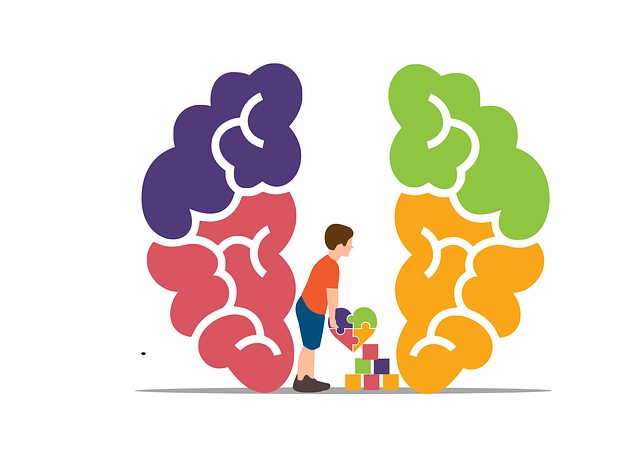The Resourceful Facilitation Method (RFM) is an innovative, evidence-based therapy approach tailored for therapists and clinicians in Denver, enhancing their ability to support clients. Through specific exercises focusing on self-awareness, coping skills, and stress reduction, RFM encourages active participation with techniques like mindful breathing and cognitive reframing. This holistic method improves both therapist well-being and the quality of care provided to clients seeking emotional balance. In Denver's therapy community, robust resilience training programs and group discussions further bolster mental wellness through shared strategies and peer support, fostering a culture of resilience and adaptability for both professionals and clients.
In today’s challenging world, building resilience is more crucial than ever. RFM (Resilience, Flexibility, and Mastery) exercises offer a powerful tool for enhancing mental fortitude. This comprehensive guide explores the role of therapists and clinicians in facilitating RFM training, providing insights into designing effective programs and implementing strategies in clinical settings. With real-world case studies from Denver therapy practices, discover how RFM can empower individuals to navigate life’s storms with resilience and grace, specifically tailored for Denver therapy professionals.
- Understanding RFM: A Key Tool for Resilience Building
- The Role of Therapists and Clinicians in Facilitating RFM Exercises
- Designing Effective Resilience Training Programs
- Implementing RFM Strategies in a Clinical Setting
- Case Studies: Success Stories from Denver Therapy Practices
Understanding RFM: A Key Tool for Resilience Building

In the realm of Denver therapy for therapists-clinicians, Resourceful Facilitation Method (RFM) stands out as a potent tool for fostering resilience in both practitioners and their clients. RFM is an evidence-based approach that leverages specific exercises to enhance self-awareness, coping skills development, and stress reduction methods. By integrating these practices into therapy sessions, professionals can create a safe space where individuals learn to navigate challenges effectively, ultimately building mental fortitude.
This method encourages active participation through tailored exercises designed to strengthen one’s ability to cope with adversity. From mindful breathing techniques to cognitive reframing strategies, RFM offers a comprehensive toolkit for managing stress and cultivating resilience. By mastering these self-awareness exercises, therapists can not only improve their own well-being but also better support their clients in achieving lasting emotional balance.
The Role of Therapists and Clinicians in Facilitating RFM Exercises

Therapists and clinicians play a pivotal role in facilitating RFM (Resilience, Flexibility, and Mastery) exercises, which are designed to enhance mental health professionals’ own resilience and well-being. Through structured interventions and personalized guidance, they help clients navigate challenging situations, build adaptive coping strategies, and develop a deeper understanding of their emotional responses. In the context of Denver therapy for therapists-clinicians, these professionals are equipped with advanced techniques in risk management planning for mental health professionals, enabling them to model and teach effective stress management strategies.
By incorporating confidence-boosting activities and conducting regular stress management workshops within their practices or organizations, therapists contribute to a culture of resilience and emotional intelligence. This not only improves their own ability to handle demanding situations but also inspires clients to adopt similar strategies in their daily lives. Such holistic approaches are essential for maintaining the well-being of mental health professionals while ensuring they can effectively support those seeking therapy.
Designing Effective Resilience Training Programs

Designing effective resilience training programs requires a holistic approach tailored to meet the unique needs of therapists and clinicians in Denver Therapy for Therapists-Clinicians Therapy. A well-rounded program should incorporate various exercises that foster mental wellness, such as journaling prompts designed to encourage self-awareness and reflective writing. Regularly integrating these practices into a therapist’s routine can significantly enhance their resilience and emotional coping mechanisms.
The Community Outreach Program Implementation plays a vital role in creating a supportive ecosystem. By organizing group discussions, workshops, and peer support sessions, therapists can build a network that promotes open communication, shares guidance on effective self-care strategies, and offers a safe space for mental wellness journaling exercises. This collective approach not only benefits individual practitioners but also strengthens the overall resilience of the therapy community in Denver.
Implementing RFM Strategies in a Clinical Setting

In a clinical setting, incorporating RFM (Resilience, Flexibility, and Mastery) strategies offers valuable tools for therapists and clinicians working with individuals seeking mental health support in Denver or any urban area. By integrating RFM into therapy sessions, professionals can equip clients with enhanced emotional regulation skills, enabling them to navigate life’s challenges more effectively. This approach encourages the development of resilience, fostering an individual’s ability to adapt and bounce back from setbacks, which is a cornerstone of successful therapy outcomes.
The implementation of these strategies often involves tailored interventions that promote flexibility in thinking and behavior, allowing clients to respond to stressors with greater ease. Additionally, helping patients cultivate a sense of mastery over their lives through specific techniques can significantly contribute to the success of any community outreach program focused on mental well-being. Encouraging the adoption of self-care routines as part of this process is also beneficial for maintaining good mental health in the long term.
Case Studies: Success Stories from Denver Therapy Practices

In the vibrant landscape of Denver therapy practices, numerous success stories emerge from those who have embraced innovative approaches to resilience building through techniques like RFM (Recovery-Focused Management). These case studies offer a glimpse into how therapists and clinicians are revolutionizing mental health care in their community. One such practice, nestled in the heart of downtown Denver, has achieved remarkable outcomes by integrating self-awareness exercises tailored to individual needs. By fostering an environment free from the stigma associated with mental illness, they’ve encouraged clients to embrace mind over matter principles, leading to sustained improvements in overall well-being.
These success stories are not isolated; they represent a growing trend among Denver therapy practices that prioritize resilience building and Mental Illness Stigma Reduction Efforts. Through creative interventions and a deep understanding of the human psyche, therapists are helping clients navigate life’s challenges with newfound strength. The results speak for themselves: improved coping mechanisms, enhanced self-esteem, and increased ability to thrive in the face of adversity. These practices are not just treating symptoms; they are empowering individuals to transform their lives.
Resilience is a powerful tool for personal growth, and integrating RFM (Recovery, Flexibility, and Mastery) strategies into therapy practices has proven effective in fostering resilience among clients. As highlighted by the case studies from Denver therapy practices, therapists and clinicians play a vital role in guiding individuals through RFM exercises, helping them navigate challenges and build a stronger sense of self. By designing comprehensive training programs and implementing these strategies in clinical settings, professionals can empower their clients to embrace change, enhance coping mechanisms, and lead more fulfilling lives. Thus, Denver therapy for therapists-clinicians is not just a service but a transformative process that resonates far beyond the walls of the practice.












